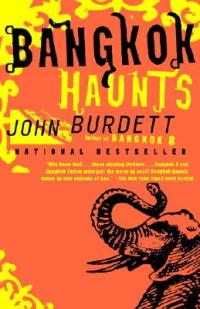Pennterra by Judith Moffett
 Tuesday, January 18, 2011 at 11:54PM
Tuesday, January 18, 2011 at 11:54PM 
Published by Congdon & Weed in October 1987
Isaac Asimov and Brian Aldiss are among the science fiction writers who have incorporated the Gaia theory into their writing. In Pennterra, Judith Moffett exports the concept to an alien world where everything, living and inanimate, is interrelated and in constant communication. The world of Pennterra is in perfect balance until its disruption is threatened by the technology, agriculture, and lifestyles of settlers seeking refuge from the devastated Earth they've fled.
Quakers are the first to colonize Pennterra. Before they can build their civilization, they encounter the hrossa, an intelligent species that communicates by empathy. They make peace with the hrossa, just as the Quakers who colonized Pennsylvania made peace with the Delaware Indians. To co-exist with the hrossa, the Quakers must agree to use no machinery, to limit their population growth, and to live only in a designated valley. But just as later settlers in Pennsylvania were willing to displace the Delaware, the Earth colonists who follow the Quakers are unwilling to abide by hrossa-imposed restrictions. The first part of the novel sets the stage for that conflict. The second part is written in the form of field notes as the Quakers engage in a scientific and anthropological investigation of a hrossa village. Living closely with the empathic hrossa during breeding season proves problematic, as the Quakers feel and share the intense and urgent sexual desires of the hrossa. The novel's third and final part resolves the conflict between the non-Quaker colonists and the hrossa (or more specifically, the spirit of the planet, for lack of a better brief explanation). There's also a bit of wilderness adventure toward the end.
Pennterra is the first novel written by Judith Moffett, whose background as a poet is reflected in her careful use of language. Although she makes Pennterra and the hrossa come alive, she does so without sacrificing development of the novel's human characters. This is, above all, a character driven story, and the main characters each have a unique, fully developed personality. The reader comes to know them well, and to appreciate their struggles.
Although I greatly admired Pennterra, it is not a novel that all readers will enjoy. The story unfolds slowly and is all the more enriching because of its languorous pace, but readers who want fast action in their sf won't find it here. Fans of hard sf might not like this novel; there's a bit of hard (biological) science, but the story depends on people, not science. Finally, there is a fair amount of sexual activity, some involving minors, that violates nearly every imaginable sexual taboo. If this were not a work of science fiction, there would probably be calls to ban and burn it. Science fiction is a literature of ideas, however, so I would expect most sf fans to understand and appreciate Moffett's rather daring concept: what is taboo on Earth may be accepted as normal behavior in an alien environment. Readers who would be put off by frank discussions of that nature should avoid Pennterra.
In an age when so much sf is the same old same old, Pennterra offers something completely different. It is a beautifully written, moving and thought-provoking novel.
HIGHLY RECOMMENDED
 TChris |
TChris |  Post a Comment |
Post a Comment |  HR,
HR,  Judith Moffett in
Judith Moffett in  Science Fiction
Science Fiction 


